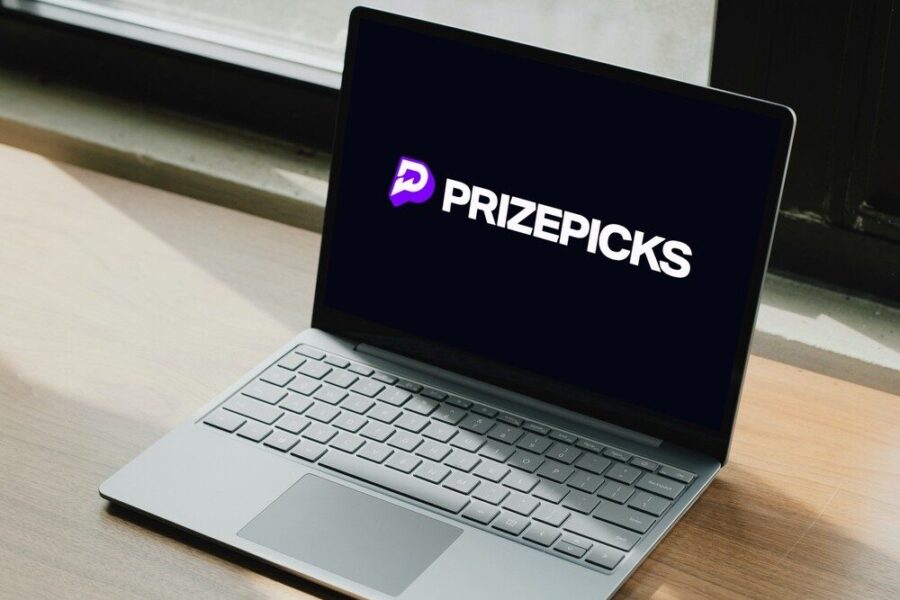PrizePicks partners with safer gambling software supplier Mindway AI

PrizePicks has announced a partnership with safer gaming software company Mindway AI.
The partnership will enhance PrizePick’s ability to detect and respond to potential problem gaming behaviors via Mindway AI’s automated detection and monitoring software.
By integrating Mindway AI’s GameScanner, PrizePicks will be able to implement behavioral analytics across its platform. This helps to identify nuanced player patterns, such as shifts towards more frequent play, increased session frequency, or accelerated spending, all of which may signal escalating risk.
Once risky behavior is identified, the platform can intervene with personalized nudges and reminders regarding responsible gaming behaviors and budget-setting tools.
“Partnering with Mindway marks a meaningful evolution in how we support player protection,” said PrizePicks Senior Director of Responsible Gaming Phil Sherwood. “By enhancing our ability to analyze behavioral data, we’re able to deliver more tailored interventions and promote responsible play tools with greater precision, helping ensure a safer, more sustainable experience for all of our players.”
The partnership also enhances PrizePicks’ ability to promote support resources such as online therapy service Kindbridge Behavioral Health and tools such as timeouts and self-exclusion options.
Customer support representatives will be better equipped with data on individual player needs, ensuring proper guidance is issued.
“Partnering with PrizePicks signifies a hugely positive step for player protection not only in the daily fantasy sports realm but in the North American market as a whole,” said Mindway AI Chief Executive Rasmus Kjaergaard. “We are proud and raring to go on our journey with PrizePicks, which we are fully confident will lead to solid outcomes for both risk minimization for their players but also increased commercial benefit for PrizePicks.”
As PrizePicks continues to expand into new markets, investment into responsible gaming remains a key focus. In 2025, PrizePicks was awarded iCAP accreditation by the National Council on Problem Gambling for its responsible gaming practices and efforts, becoming the first fantasy sports operator to earn the certification.
Verticals:
Sectors:
Topics:
Dig Deeper
The Backstory
How responsible gaming moved to the foreground
The current push to harden consumer protections in sports betting and daily fantasy has been years in the making, but it is accelerating as operators seek growth under tighter scrutiny. A string of recent deals and appointments shows how the industry is embedding detection software, blocking tools and integrity checks into core operations rather than treating them as add-ons. Operators are responding to regulator expectations and the practical realities of mobile behavior, where frictionless wagers can turn into costly risk without early warnings or firm guardrails.
In the daily fantasy market, one of the fastest-growing segments of online wagering, companies are layering in analytics and compliance talent to keep pace with expansion. That trend mirrors moves among sportsbooks and newly regulated operators abroad, where data-driven tools are becoming a license-to-operate requirement. Together, these steps frame the stakes of today’s story: a market racing to scale while proving it can spot harm sooner, keep prohibited users out and steer at-risk players toward help before a problem deepens.
PrizePicks’ two-track strategy: technology and compliance
Daily fantasy leader PrizePicks has stitched together a dual approach built on predictive software and regulatory muscle. The company partnered with safer gambling supplier Mindway AI to deploy its GameScanner across the platform, a system designed to flag subtle shifts in behavior such as more frequent sessions or faster spending that could signal rising risk. The integration enables tailored nudges and budget reminders while making timeout and self-exclusion options more visible. The company framed the move as a step-change in precision interventions, aiming to “promote responsible play tools with greater precision” and bolster support resources like Kindbridge Behavioral Health. Read more about the partnership in PrizePicks partners with safer gambling software supplier Mindway AI.
PrizePicks also fortified its regulatory bench by naming Todd Grossman, a former general counsel and interim executive director at the Massachusetts Gaming Commission, as director of gaming regulatory compliance. Grossman helped build Massachusetts’ wagering frameworks and now will align PrizePicks’ compliance strategy as jurisdictions evolve. The hire underscores how governance is becoming a competitive edge as fantasy operators seek new licenses and navigate varied state interpretations. Details are in PrizePicks appoints Todd Grossman director of gaming regulatory compliance.
The company’s responsible gaming posture earned it iCAP accreditation from the National Council on Problem Gambling in 2025, the first for a fantasy operator. With AI-led monitoring and seasoned regulatory leadership, PrizePicks is positioning responsible play as a growth enabler rather than a constraint.
Blocking the front door: Sleeper leans on ProhiBet
Fantasy operator Sleeper is attacking risk from a different angle: keeping prohibited users out. The company integrated IC360’s ProhiBet system, which won a responsible gaming award last year and sends real-time alerts when banned individuals attempt to enter paid contests. The tool responds to a patchwork of state rules and league prohibitions that have complicated compliance for fantasy apps operating across dozens of markets. Sleeper said the partnership advances a fair and responsible environment by preventing disqualified participants from slipping through gaps. The details are in Fantasy sports operator Sleeper signs IC360 partnership to boost safer gambling.
The ProhiBet deployment highlights a broader shift from reactive enforcement to proactive screening. With athletes and league personnel barred from betting and participating in many fantasy contexts, automated checks reduce the risk of scandals that could shake user trust and trigger regulatory backlash.
Industry scaffolding: ROGA’s push for free blocking tools
Beyond individual operators, trade groups are working to standardize protections that move with the player. The Responsible Online Gaming Association teamed with nonprofit BetBlocker to promote free software that can block access to more than 118,400 gambling websites and 1,500 apps across devices. ROGA said it will feature BetBlocker prominently and explore integration paths with its eight member operators. That effort complements ROGA’s plan for a data clearinghouse to enable cross-operator self-exclusion, extending protection beyond any single brand’s perimeter. More on the initiative is available in Responsible Online Gaming Association and BetBlocker collaborate for blocking software.
The emphasis on no-cost, anonymous tools is notable. Free, device-wide blocking lowers barriers for people who want help but avoid sign-ups or fear stigma. For operators, aligning with such programs can blunt criticism that commercial incentives outweigh consumer safeguards, especially when marketing budgets dwarf education campaigns.
Global context: Sportradar’s AI triage in Brazil
Outside the United States, suppliers are rolling out risk detection tailored to newly regulated markets. Sportradar launched its Bettor Sense tool with Brazilian operator BETesporte, bringing AI to spot early signs of gambling-related risk and trigger tailored interventions. The operator also joined Sportradar’s Integrity Exchange to report suspicious wagering, linking consumer protection with match-fixing prevention. The Brazilian deployment reflects how compliance expectations are rising in fresh markets as regulators prioritize both user safety and sport integrity. See Sportradar launches Bettor Sense solution with Brazil’s BETesporte.
For U.S. operators watching Brazil, the lesson is clear: the bar on monitoring and intervention is converging across jurisdictions. As tools prove scalable, regulators may view them as standard rather than premium features.
The behavioral reality: mobile habits outpace old playbooks
The rationale for these investments is not abstract. Experts warn that the speed and convenience of mobile betting make it easier to lose track of spending, particularly when cash feels intangible. Panelists at a recent industry conference pointed to the need for more sophisticated awareness campaigns that can match the reach and polish of promotional marketing. They also flagged the influence of celebrities and social media on young consumers who may not recognize sports wagering as gambling. The discussion is summarized in Mobile gaming is here, with tools to address problem gambling.
This behavioral backdrop gives urgency to AI-based monitoring, cross-operator blocks and prohibited-person screening. It also explains why companies are hiring compliance chiefs with deep public-sector experience to navigate evolving rules and expectations. For operators, the stakes run beyond fines. Persistent lapses risk a loss of consumer confidence and potential limits on new products, advertising or market access.
Taken together, these developments show a sector moving from piecemeal safeguards to systemwide defenses. Fantasy platforms are building internal analytics muscles, integrity providers are scaling enforcement tools, and industry groups are assembling shared infrastructure. The common thread is a shift from compliance as a check-the-box function to a strategic pillar. As regulators test for outcomes rather than policies on paper, the winners will be those that can demonstrate measurable risk reduction without sacrificing user experience.









